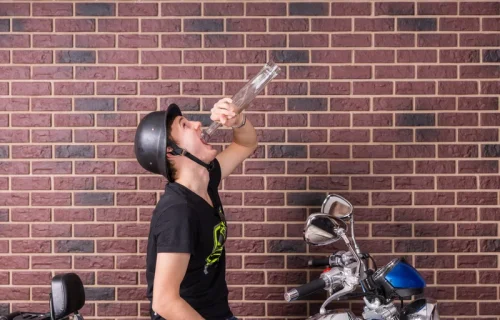Whether you’re working, studying, or managing family commitments, we offer flexible outpatient programs that won’t disrupt your daily routine. If you’re looking for something more immersive, our intensive outpatient programs are there to give you even more structure and support. https://ecosoberhouse.com/ We can also connect you with detox centers all over California to help streamline the intensity of the withdrawal process. Alcohol can dehydrate the skin, leading to dryness and dullness, and it may also cause inflammation and redness, disrupting the skin’s natural balance.
Oxidative Stress from Alcohol Can Speed Up Aging
- If you’re looking for a “less-bad” alcoholic option, there are several factors to consider.
- To fight them, your body uses antioxidants such as vitamin A, which decreases your overall levels of those antioxidants.
- “Excessive alcohol consumption can cause nerve damage and irreversible forms of dementia,” Dr. Sengupta warns.
- Consider consulting a dermatologist or healthcare professional for personalized advice and treatment options.
- Studies have shown that alcohol, particularly red wine, is a common trigger for rosacea flare-ups.
The effect of alcohol on your immune system and the way your circulatory system works affect the skin too. Drinking alcohol can cause or worsen psoriasis3 (a condition that causes flaky skin) and rosacea4 (redness or flushing on the face). Recent studies have shown that a moderate consumption of alcohol can be beneficial to one’s health and enjoying a glass of wine or beer after a hard day at work is a common way to relax. However, consuming too much alcohol not only makes you feel bad, it can affect your appearance too. Dehydration caused by chronic alcohol use may lead the skin to overproduce sebum, the naturally occurring oil in your skin.
Can Alcohol Damage Your Skin?
One of the main reasons skin takes such a beating from a few too many cocktails is that alcohol is a diuretic, says Y. Claire Chang, MD, a board-certified dermatologist at Union Square Laser Dermatology in New York City. But the good news is that when you forgo the booze (and prioritize drinking water), the dehydrating effects of alcohol are fairly easy to fix. And the calories in an alcoholic drink don’t just come from the alcohol – many have additional calories from carbohydrates as well, like sugar or starch. This can make a drink very calorific – for example, a pint of lager can contain the same amount of calories as a slice of pizza, or a large glass of wine the same an ice cream sundae.
- Given the connection between liver function and skin health, address any liver issues.
- Melanoma, also referred to as malignant melanoma, is a highly malignant tumor arising from melanocytes.
- When you’re able to get a good night’s sleep, your skin and body can much more effectively recharge, allowing you to wake up looking less tired.
- According to Dr. Samolitis, clear liquors like vodka and tequila have the least amount of sugar and fewest added ingredients, so those might be the safest bets for those who don’t want to skip out on good times.
The Science Behind Alcohol’s Effect on Skin Health
While it’s best to limit alcohol consumption for the sake of your overall health, there are steps you can take to protect your skin while drinking alcohol. If you like to drink sometimes, learning about the effects of alcohol on skin may feel disheartening. Luckily, there are steps you can take to protect your skin from the effects of a night of drinking.
Alcohol’s Impact on Skin Health
This will help to counteract the dehydrating effects of alcohol and keep your skin looking and feeling its best. Furthermore, alcohol can deplete your body’s vitamin A levels, which is crucial for maintaining how alcohol affects your skin healthy skin. Vitamin A helps to promote cell turnover and repair damaged skin cells. When vitamin A levels are low, your skin’s ability to regenerate and heal is compromised, leading to premature aging.
It triggers inflammation.
- Excessive alcohol use accelerates the aging process in your skin and decreases your overall skin health.
- This occurs when your body breaks down alcohol and creates acetaldehyde.
- This is because eye bags can be caused by fluids that tend to pool in the under-eye area if your head is lying flat, leaving you looking for ways to get rid of dark circles.
- The high levels of salt and sugar content in your alcoholic beverage, may trigger the hormone IGF-1, which causes an over-production of oil in your skin.
- Having a glass of water in between each alcoholic drink may decrease the risk of dehydration.
If a person drinks alcohol regularly, the short-term effects, such as dry skin and flushing, are more likely to become a persistent problem. Alcohol reduces levels of vitamin A in the body, leading to decreased skin renewal and repair. It also causes oxidative stress, damaging skin cells and accelerating the aging process. Staying hydrated, using moisturizers, reducing alcohol intake, and choosing gentle skincare products can help protect your skin if you drink alcohol. So, aside from drinking in moderation, what is Dr. Spizuoco’s advice on mitigating superficial strain while drinking? She suggests alternating between a serving of alcohol and a glass of water.
- In alcohol’s instance, as the body metabolizes it, it releases a byproduct called acetaldehyde, which Spizuoco says is toxic to body tissues and skin (causing both to lose moisture).
- While many people first think of the liver and brain when considering the effects of alcohol, its impact extends far beyond these vital organs.
- And while hard liquor may contain less sugar and gluten that trigger inflammation, ounce for ounce, liquor delivers more alcohol, which is highly inflammatory.
- Your body works to repair DNA damage caused by the sun, but alcohol can interfere with that process.
Skin changes due to alcoholic liver disease
However, by understanding the science behind alcohol’s effect on the skin and taking steps to protect and care for your skin while drinking alcohol, you can minimize the negative effects. If you are struggling with alcohol addiction, seeking professional help is essential for both your overall health and your skin health. By taking care of your skin and maintaining a healthy lifestyle in recovery, you can ensure that your skin remains healthy and vibrant for years to come. Chronic alcohol consumption depletes levels of vitamin A in the body, a crucial antioxidant for skin renewal and repair.
Urticaria (hives) may occur within minutes to hours of drinking alcohol and is sometimes due to allergic reaction. Flushing and overheating after drinking alcohol may also indicate cholinergic urticaria. This is a physical type of urticaria is brought on my heat, exercise, or stress. All of these skin conditions may occur without any history of alcohol abuse. Nutritional deficiency can develop when alcohol replaces normal food in the diet and the digestive tract and liver do not digest and process food the way they should resulting in malabsorption. With little calorie or protein intake the skin becomes dry and loses elasticity.
Alcohol can cause dehydration, inflammation, and damage to the skin’s barrier function, leading to premature aging, acne, and other skin problems. Having a glass of wine with dinner or a beer at a party here and there isn’t going to destroy your gut. But even low amounts of daily drinking and prolonged and heavy use of alcohol can lead to significant problems for your digestive system. Unfortunately, if you’ve been drinking heavily for a long time, some damage may be irreversible. In this case, try to cut back on alcohol as much as you can to help your skin rebound. Because cocktails often contain a mixture of syrupy drinks and alcohol, they can be loaded with sugar—and all that extra sugar could mean inflammation, accelerated aging, and acne.

CURSO GRATUITO
👇🏼 INSCREVA-SE E COMECE A GANHAR DINHEIRO DE VERDADE NA INTERNET 👇🏼
Sobre o Autor




0 Comentários